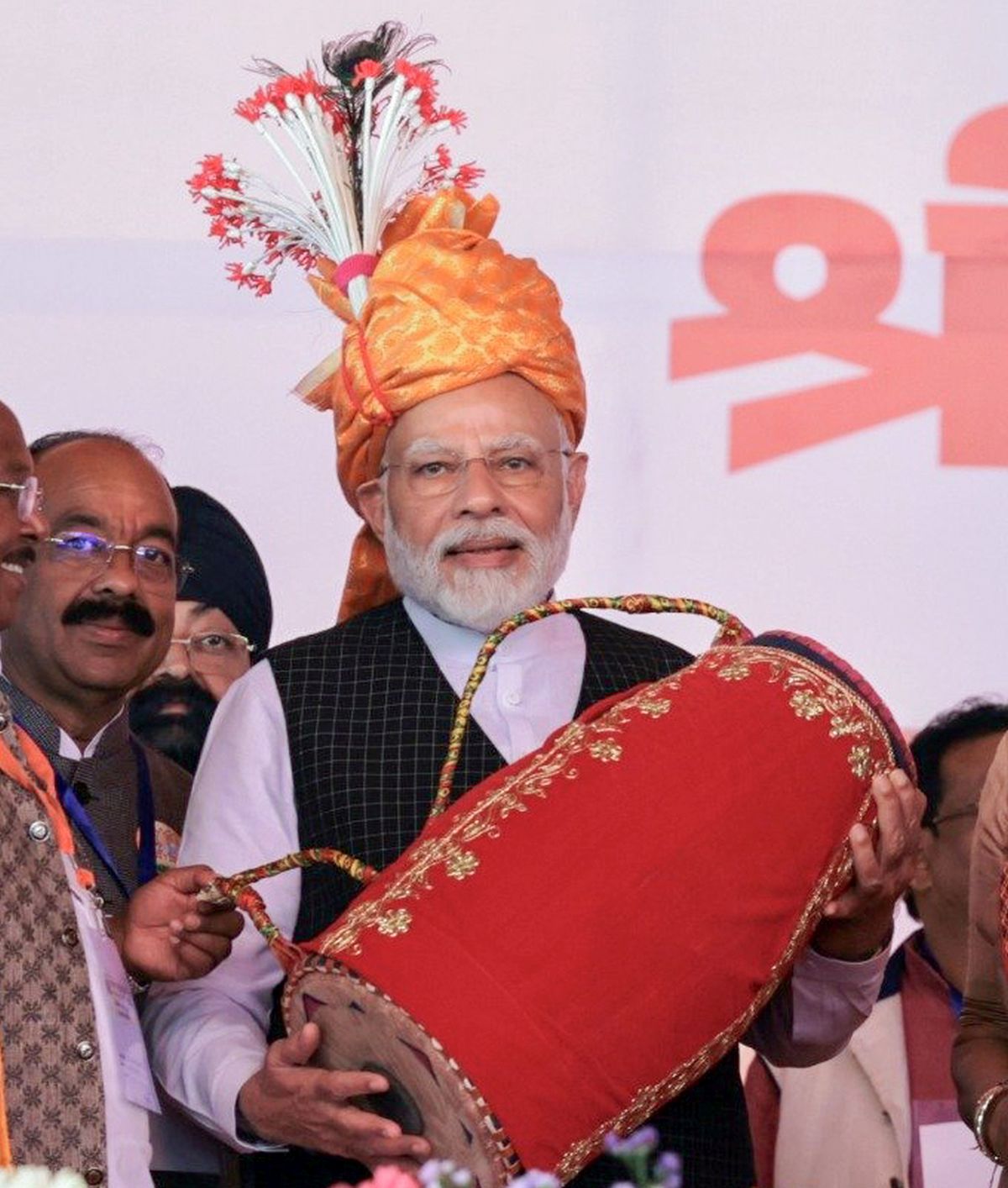Chhattisgarh: BJP performs well in tribal-dominated seats
December 04, 2023 12:51

The BJP, which suffered a huge setback in Chhattisgarh's tribal-dominated assembly seats in the 2018 polls, put up a good show this time winning 17 of the 29 seats reserved for the Scheduled Tribes (ST) category.
According to poll experts, the public rallies of Prime Minister Narendra Modi, Union Home Minister Amit Shah and BJP chief JP Nadda in the tribal belt, launch of the party's two parivartan yatras from tribal pockets and pre-poll promises worked in the party's favour in the adivasi belt.
The BJP on Sunday wrested power from the Congress in Chhattisgarh, winning 54 of the 90 seats in the state assembly, while the grand old party got 35 seats.
The Gondwana Gantantra Party (GGP) bagged one seat. In the 90-member Chhattisgarh assembly, 29 seats are reserved for the ST category, which comprises around 32 per cent of the state's population. The Congress, which won 25 ST-reserved seats in the 2018 assembly polls, managed to secure just 11 this time.
On the other hand, the BJP significantly improved its tally from 3 in 2018 to 17 tribal-dominated seats this time. One tribal seat was bagged by the GGP.
Tribals are considered to be crucial in the formation of government in the state. Despite taking a number of pro-tribal welfare measures, the Congress could not retain their support this time, Raipur-based poll analyst R Krishna Das told PTI.
Several incidents of clashes were reported between tribals and the tribals who converted to Christianity in different areas of the state, particularly in Bastar division, related to religious conversion in the last couple of years, he said.
The issue continued to haunt the ruling Congress during electioneering as top BJP leaders in their poll campaigning aggressively targeted the Bhupesh Baghel government, accusing it of giving protection to those who indulged in conversion, Das said.
Tribal pockets in Surguja and Bastar division also witnessed protests against mining, he noted.
The GGP and Hamar Raj Party (an outfit recently floated by Sarva Adivasi Samaj- an umbrella organisation of tribal groups) also affected the Congress' prospects in many ST-reserved seats, he said. Congress' senior tribal minister Amarjeet Bhagat, who had been unbeaten in SitapurST seat since the formation of the state, suffered defeat this time. Another senior tribal leader and former Congress' state chief Mohan Markam also lost his Kondagaon (ST) seat.
BJP's senior tribal leaders who have this time won from seats reserved for the ST community are Union minister Renuka Singh (Bharatpur-Sonhat), MP Gomti Sai (Pathalgaon), former Union minister Vishnu Deo Sai (Kunkuri), former state ministers Ramvichar Netam (Ramanujganj), Kedar Kashyap (Narayanpur) and Lata Usendi (Kondagaon). Neelkanth Tekam, an IAS officer who quit his service ahead of polls and joined the BJP, emerged victorious in Keshkal-ST seat.
In the first assembly elections held in Chhattisgarh in 2003 after the state was formed in 2000, the BJP managed to make deep inroads among tribals, who were once considered staunch supporters of the Congress.
But in the next elections, the BJP kept losing hold over them.
In the 2003 assembly polls, 34 seats in the 90-member House were reserved for the ST category. The BJP then registered a victory as it defeated the Ajit Jogi-led Congress government by winning 50 seats, including 25 reserved for the ST category. The Congress then won nine ST-reserved seats.
In the 2008 assembly elections, the BJP again formed government by winning 50 seats in the state, including 19 out of 29 ST-reserved seats, while the Congress won 10 ST-reserved seats. The delimitation reduced the ST-reserved seats from 34 to 29 in the state in 2008. -- PTI





 © 2024 Rediff.com -
© 2024 Rediff.com -